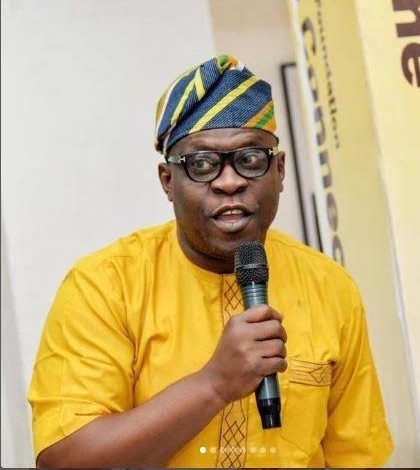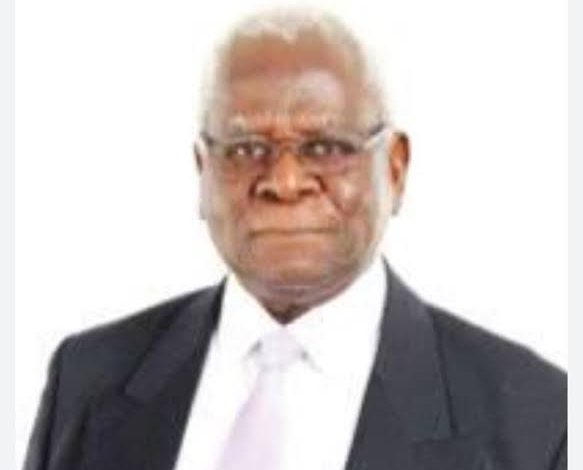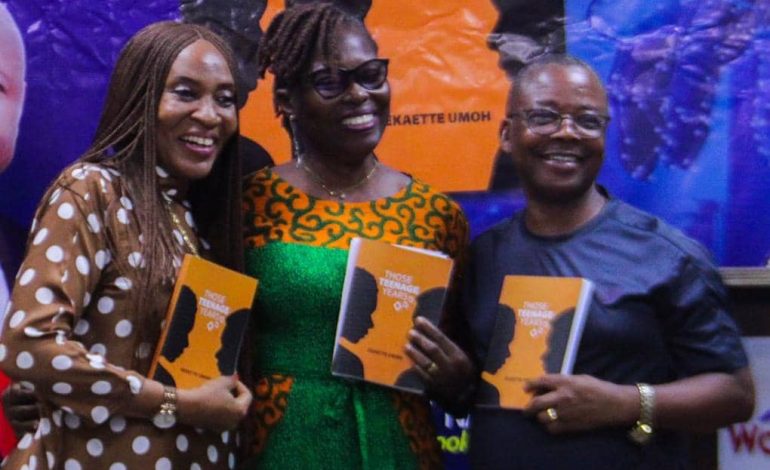Contrasting views as NFVCB bids to control glamourization of tobacco, ritual killing in Nollywood

* The board wants us to censor our movies ourselves, and that is very commendable, says Kuforji
* The right of the artist(e) includes the right to create bad/poor/annoying art, says Gomba
By Godwin Okondo
STAKEHOLDERS in the entertainment and cultural industry have offered contrasting views on National Film and Video Censors Board’s (NFVCB) bid to regulate the promotion and glamourization of ritual killings, tobacco and nicotine products in movies, musical videos, and skits. The move is said to be in line with the Board’s Regulations 2024 and global best practices. At a recent stakeholders’ engagement on Smoke-Free Nollywood, the industry professionals agreed to join the global effort to deemphasize smoking in movies. The event, organized by the NFVCB and the Corporate Accountability and Public Participation Africa (CAPPA), aimed to address the emergency that has become the promotion, subtle advertising and glamourisation of tobacco and nicotine product in Nollywood movies.
The Executive Director and Chief Executive Officer of NFVCB, Dr. Shaibu Husseini emphasized the need for ambitious actions from all stakeholders to protect young people from harmful content. He noted that the board, in collaboration with CAPPA, has developed a subsidiary regulation to cater to smoking in movies, as this aspect was not explicitly addressed in the extant law.
Industry leaders, including the National President of the Association of Movie Producers (AMP), Ambassador Dr. Queen Blessing Ebigieson and the President of the Federation of Heads of Nollywood Guilds and Associations (FRENGAN), Dr. Victor Okhai, commended NFVCB for its efforts to reposition the industry. They emphasized the need for responsible storytelling and the importance of not promoting harmful practices, such as smoking and ritual killing, in movies. Other industry professionals, including Ugezu Ugezu, Rob Emeka Eze, and Dr. Ahmad Sarari also expressed support for NFVCB’s initiative. They clarified that the board did not ban smoking in films but rather sought to sensitize filmmakers on the issue and encourage responsible storytelling.
Specifically, Ebigieson, stated “The Smoke-free Nollywood programme, which was held on May 21, 2024 at Nike Lake Resort Hotel Enugu State, was indeed a welcome development and a successful programme, as all stakeholders including myself unanimously agreed that it was necessary for Nollywood movies to include health warnings and NFVCB classification symbols. This measure will protect our young ones who consume harmful content from streaming platforms.”

Executive Director/CEO, NFVCB, Dr. Shaibu Husseini
She described the workshop as very timely in addressing the glamourization of tobacco and nicotine products in movie scenes, which NFVCB and CAPPA are sensitizing the industry practitioners in line with world best practices, and in accordance with the law.
Ebigieson declared, “The Executive Director/CEO, Dr. Shaibu Husseini, has shown resilience, integrity, and purposeful leadership within two months in office. The board has braced up to her regulatory oversight, and the industry is happy that Dr. Shaibu Husseini is seriously hitting the ground running in all facets to reposition the industry”.
Okhai, who is also the President of the Directors Guild of Nigeria (DGN), also said, “Decision on smoke-free Nollywood was consultative. The industry was well carried along and we are a responsible industry. We felt it was our corporate social responsibility to the public to make sure they realized that cigarette is dangerous. After the robust engagements, we concluded, ‘we shall not be part of the influencers for the cigarette industry.’ How would you feel when you wake up one day and see your 10-year-old son smoking because he saw someone smoking on the screen.
“We also agreed there are exceptions. Even where there are exceptions in our storytelling, we must show it is not right to portray smoking indiscriminately, and there are consequences for that as well. I personally do not understand why the Executive Director is being criticized. He has always said that classification is the way to go and not censorship.”
An notable film producer and director, Ugezu Ugezu, said categorically that NFVCB “did not ban cigarette smoking in films. Everything is online now. For instance, you put your musical video and think it is playing all over the world, whereas it is not so because of smoking scenes. What the NFVCB is saying is, “there are so many cigarette scenes in our movies that could have been avoided.”
Chief Executive Officer of Rainbow Cinema, Rob Emeka Eze, said, “We are surprised by the headlines we are reading saying that the National Film and Video Censors Board has banned smoking in movies. I wonder whether it was still the same stakeholders meeting we attended or not. We gave all the details. Even when you are shooting a movie, and there is a smoking scene, you have to show the reason. You do not have to glamourize smoking in your movie as if you are encouraging it”.
According to Eze, who is also the owner of Nollymovies Entertainment Limited, “The NFVCB may not even bother itself. If you put your film on YouTube and the smoking scene is not relevant to the movie, YouTube will activate demonetization of that movie”.
The Chief Executive Officer of Arise Films Motion Pictures, Chief Bolaji Ahmed Kuforji, stated that he was glad with the decision of the board, saying NFVCB wants filmmakers to make amends on how to use cigarette and rituals in their movies. “According to him, the board is stating what has become a global practice to indicate in a scene that tobacco smokers are liable to die young. The board wants us to censor our movies ourselves, and that is very commendable.”
The stakeholders agreed that the NFVCB’s move was not intended to stifle creativity but to maintain international best practices and protect the well-being of young people. They encouraged the Board to replicate the advocacy engagement in all six geo-political zones of the country to ensure the message reaches all industry players.
BUT cultural workers in the literary sphere, which does not have any government regulatory or support agency and existing purely on its own terms, but which largely conducts itself well and explicating acceptable African cultural traditions with nuanced sensisitivity, are not amused by whatever term NFVCB is adopting to control or ‘ban’ what is offered in films and music as creative media. Some would rather artist(e)s are allowed to make art they way they deem fit without looking over their shoulders. Multiple award-winning poet and Associate Dean at the University of Port Harcourt, Dr. Obari Gomba, calls the move ‘crude leap of censorship’, saying regulating vice does not eradicate vice.
“This is a crude leap of censorship,” Dr. Gomba fumed. “To ban the depiction of vices will not eradicate vices. The role of the artist(e) is to make art, not to launder the image of a country that is full of vices, not to be silent on the ills of society. If a topic is recurrent in art, it becomes a motif for “intertextual” discourse. If the storylines are boring, repetitive, and unimaginative, it is a subject of scholarly criticism. When a government begins to go this far to tell artist(es) what to depict/represent/evoke/enunciate, then the territory of creativity is shrinking. The right of the artist(e) includes the right to create bad/poor/annoying art.”
But another writer, Mr. Chidi G. Osuagwu agrees with Gomba and calls the move ‘Killing a fly with sledge hammer in the time of cultural misrepresentation for profit’, saying, “The unwarranted attempt by the government to magisterially pontificate what our artists/artistes can recreate will annihilate creativity in Nigeria. What matters should ideally not be the content of art, but how it is projected by the artist/artiste. Is he/she promoting the depicted vice or condemning it (say via irony or poetic justice)? Need we go back to the classical debate between Plato and Aristotle on the place of art in an ideal society here and now? Art is, and should remain, a mirror of society. Let us first sanitise our society and our artists will naturally recreate it.
“Maybe government hit a fly with a sledge hammer. But, there is a valid issue of ‘African Cultural Misrepresentation for Profit’ by some ‘Trader-filmmakers’ who show no restraint with industrial scale production of gore. These must have instigated this government’s over-reaction.
“A mother that has ogbanje/abiku…Evil Spirit child-snatcher, as neighbour dreads sleep. Many of the people producing Nigerian movies know little about African civilizations/cultures they try to portray and make no effort to learn. Rather, they exploit the cravings of ignorant people and some interests out to demonise and stigmatise African cultures as vodoun bubuyaya. And they do it with nothing but profit in view.”
Osuagwu then went to stress collaboration between the country’s writers, who have excelled globally with their art and filmmakers for better screen narratives do not offend the African sensibility that has called for the proposed regulation and control. He hinted that literary writers are more rooted in the continent’s cultural consciousness and write with a view to elevate rather than the grossness often seen in Nollywood films.
“The present situation shows the urgency for close collaboration between (literary) writers and filmmakers in Nigeria,” Osuagwu noted. “Just a day before this government announcement, I had raised this issue with some ANA members that visited me at Owerri. One suggestion was that ANA national should show due interest in this issue so that the undesirable phenomenon of ‘cultural policing’ doesn’t start with filmmakers and spread to writers, singers, etc, in Nigeria.”
Leticia, another writer, is peeved that it took such a long for any form of control to be pronounced, especially when so much damage had been done to the country’s image, noting, “After the harm has been done! What has the censors board been doing all this time? Even Hollywood has a code: American 1st! Since Living in Bondage was first shown, there had been complaints yet they waited for us to get the tag of a nation of okotoko, ritualists and scammers before rising to bolt the door with the horse already galloping away!”



